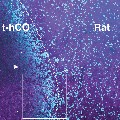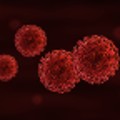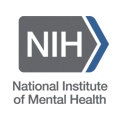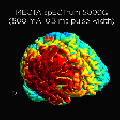The NIMH Strategic Plan for Research was initially published on May 19, 2020, and was last updated on May 29, 2024. NIMH is currently updating this Strategic Plan to ensure it is aligned with the current Administration’s priorities and complies with this Administration’s Executive Orders. The updated version will be posted once available.
Progress for Goal 3
Learn about the progress NIMH has made toward Goal 3 of the NIMH Strategic Plan for Research: Strive for Prevention and Cures.
- Integrated Care for Depression Yields Extended Benefits, Malawi Study Shows
-
An NIMH-funded study showed that incorporating depression treatment into care for chronic health conditions improved well-being for both patients and their families.
- Primary Care Can Play Key Role in Suicide Prevention
-
Adding suicide care practices to routine adult primary care visits reduced suicide attempts by 25% in the months after the visit.
- Improving Firearm Safety in Pediatric Primary Care
-
An automatic reminder supported by low-burden facilitation increased delivery of a universal secure firearm storage program during pediatric primary care.
- New Hope for Rapid-Acting Depression Treatment
-
A new study, funded in part by the National Institute of Mental Health, showed that a new medication derived from ketamine is safe and acceptable for use in humans, setting the stage for clinical trials testing it for hard-to-treat mental disorders like severe depression.
- New Gene Delivery Method Paves the Way for Advanced Brain Therapies
-
A new study, funded in part by the National Institute of Mental Health, describes a promising new gene delivery vehicle that could advance treatment for brain disorders.
- Collaborative Care Could Help Reduce Disparities in Mental Health Treatment
-
In an NIMH-funded study, a comprehensive collaborative care intervention significantly reduced post-traumatic stress disorder (PTSD) symptoms among trauma patients from racial and ethnic minority backgrounds.
- Digital Autism Screening Tool Could Enhance Early Identification
-
A tablet-based screening tool that analyzes children’s behavior in response to specific video clips shows promise for enhancing early autism screening, according to a study supported by NIMH.
- Characterizing Childhood Irritability Across Ages and Stages
-
NIMH-supported research captures expressions of irritability across developmental stages via a clinically relevant measurement tool: the MAPS Temper Loss Scale.
- Basic Research Powers the First Medication for Postpartum Depression
-
Decades of NIMH-supported basic research led to a pioneering treatment for postpartum depression and continues to power exciting advances in women's mental health care.
- Gene-Based Therapy Restores Cellular Development and Function in Brain Cells From People With Timothy Syndrome
-
In a proof-of-concept study, researchers demonstrated the effectiveness of a potential new therapy for Timothy syndrome, an often life-threatening and rare genetic disorder that affects a wide range of bodily systems, leading to severe cardiac, neurological, and psychiatric symptoms as well as physical differences such as webbed fingers and toes.
- Novel Treatment Helps Children With Severe Irritability
-
A new study by NIMH researchers demonstrated the effectiveness, feasibility, and safety of exposure-based cognitive behavioral therapy for severe irritability and temper outbursts in children. The positive results set the foundation to continue exploring exposure therapy as a potential treatment for childhood irritability.
- Intervention Reduces Likelihood of Developing Postpartum Anxiety and Depression by More Than 70%
-
Results from a large clinical trial funded by the National Institutes of Health show that an intervention for anxiety provided to pregnant women living in Pakistan significantly reduced the likelihood of the women developing moderate-to-severe anxiety, depression, or both six weeks after birth.
- Cognitive Behavioral Therapy Alters Brain Activity in Children With Anxiety
-
Researchers at the National Institute of Mental Health found that unmedicated children with anxiety disorders show widespread overactivation in brain functioning and that treatment with cognitive behavioral therapy led to a clinically significant drop in anxiety symptoms and improved brain functioning.
- Saving Lives Through the Science of Suicide Prevention
-
Evidence-based efforts to improve suicide risk screening, assessment, and intervention are helping to save lives, thanks to research supported by NIMH.
- Emergency Department Intervention Reduces Adult Suicide Risk
-
Evidence-based practices for suicide prevention effectively reduced suicidal behaviors among adults seen for care in emergency departments.
- Cracking the Ketamine Code
-
NIMH supported science and NIMH researchers helped pave the way for the development of ketamine—a groundbreaking treatment that has improved the lives of those who are impacted by treatment-resistant depression.
- Helping People With Serious Mental Illness Quit Smoking
-
In a study funded by the National Institute of Mental Health and published in JAMA Psychiatry, Gail Daumit, M.D., of Johns Hopkins University, A. Eden Evins, M.D., of Massachusetts General Hospital and Harvard Medical School, and colleagues developed a tobacco smoking cessation intervention for people with serious mental illness.
- RAISE-ing the Standard of Care for Schizophrenia: The Rapid Adoption of Coordinated Specialty Care in the United States
-
The Recovery After an Initial Schizophrenia Episode research initiative, launched by NIMH to test the effectiveness of coordinated specialty care to treat first-episode psychosis, has transformed the mental health landscape in the United States and helped thousands of people with schizophrenia achieve better outcomes.
- Blocking HIV Enzyme Reduces Infectivity and Slows Viral Rebound
-
In this NIMH-funded study, researchers developed a compound that blocked an enzyme critical for forming HIV particles, which stopped the virus from correctly forming and becoming infectious.
- Chatbot Encourages People With Eating Disorders to Seek Care
-
In a new NIMH-funded study, Ellen Fitzsimmons-Craft, Ph.D., an associate professor of psychiatry at Washington University School of Medicine, and colleagues developed a chatbot to encourage people with eating disorders to connect with care.
- Breaking Down Barriers to HIV Medication Access
-
Researchers investigated whether home delivery of ART for a modest fee could help improve ART access and use, finding it resulted in increased viral suppression in participants compared with clinic-based medication distribution.
- Long-acting antiretroviral therapy suppresses HIV among people with unstable housing, mental illnesses, substance use disorder
-
A long-acting antiretroviral treatment given every four to eight weeks, and delivered with comprehensive support services, suppressed HIV in people who were previously not virologically suppressed.
- Brief Cognitive Training May Extend the Antidepressant Effects of Ketamine
-
An NIMH-supported study suggests that a brief self-association training program can extend the effects of a single ketamine infusion by shifting people’s negative self-beliefs.
- Barriers and Supports to HIV Prevention Among Young Women in Kenya
-
In a qualitative study supported by NIMH, researchers identified barriers and supports to Kenyan women’s use of PrEP, a highly effective medication to reduce HIV transmission.
- A Clinical Pathway for Suicide Risk Screening in Adult Primary Care
-
An NIMH-supported workgroup developed an evidence-based screening pathway to help primary care doctors identify adults at risk of suicide and bridge them to critical mental health services.
- Study Shows REACH VET Program Effective for Veterans at High Risk for Suicide
-
A recent NIMH co-authored study shows that a Department of Veterans Affairs suicide prevention program was associated with fewer inpatient mental health admissions and emergency department visits, and a 5 percent reduction in documented suicide attempts.
- Mindful Mood Balance Effective for Treating Residual Depressive Symptoms and Suicidal Ideation
-
NIMH-supported researchers have found an online mindfulness-based cognitive behavioral therapy—called Mindful Mood Balance—is effective at reducing residual depressive symptoms and at reducing suicidal ideation in those who experience these symptoms.
- New Approach Allows Magnetic Brain Stimulation to Target Deep Brain Structures
-
TMS can only directly stimulate the outermost layer of the brain, but NIMH researchers have found that mapping a person’s brain architecture may make it possible to guide TMS to deep brain targets.
- Personalizing Deep Brain Stimulation for Treatment-Resistant Depression
-
A recent NIMH-supported study investigated whether deep brain stimulation could be personalized for individuals with treatment-resistant depression.
- Understanding the Characteristics of Suicide in Young Children
-
Researchers supported by NIMH recently published a study describing the characteristics of suicide in young children and the factors that sometimes precede these tragic events, providing an avenue for future research and intervention.
- A New Strength-Focused Framework to Prevent American Indian and Alaska Native Youth Suicide
-
Researchers have developed a promising new framework for suicide prevention in American Indian and Alaska Native (AI/AN) communities. The research framework expands on conventional risk reduction strategies by placing Indigenous culture, knowledge, beliefs, and community collaboration at the center of the approach.
- Researchers Use Exosome-Based Strategy to Block HIV in Mice
-
In this NIMH-funded study, researchers used exosomes to deliver novel protein into the cells of mice infected with HIV. The protein attached to HIV’s genetic material and prevented it from replicating, resulting in reduced levels of HIV in the bone marrow, spleen, and brain.
- Partner Violence and Elevated HIV Viral Load in South African Women
-
New analysis suggests an association between intimate partner violence and elevated viral loads among postpartum women in South Africa.
- Improved Emotion Regulation in Dialectical Behavior Therapy Reduces Suicide Risk in Youth
-
An analysis of clinical trial data shows that improvements in emotion regulation in youth at high risk for suicide who received dialectical behavior therapy (DBT) led to a reduction in self-harm behaviors.
- Assessing Suicide Risk Among Childbearing Women in the U.S. Before and After Giving Birth
-
NIMH-supported researchers investigated suicide risk among women in the year before and year after giving birth.
- Investigating Unintentional Injury as a Risk Factor for Self-Harm
-
In a recent study, NIMH-supported researchers found that certain types of unintentional injury have stronger associations with self-harm than others in adolescents.
- Media Advisory: Prototype App for Mobile Devices Could Screen Children at Risk for Autism Spectrum Disorder
-
A mobile app was successful at distinguishing toddlers diagnosed with autism spectrum disorder (ASD) from typically developing toddlers based on their eye movements while watching videos, according to a study funded by the National Institutes of Health.
- NIMH Addresses Critical Need for Rapid-Acting Interventions for Severe Suicide Risk
-
NIMH is working to meet the urgent need for rapid-acting suicide prevention interventions by supporting research investigating the feasibility and safety of treatment protocols that have the potential to quickly reduce severe suicide risk in youth and adults.
- Adaptive Screener May Help Identify Youth at Risk of Suicide
-
In a study supported by NIMH, researchers have developed a computerized adaptive screener that can help identify youth at risk for attempting suicide.
- Using Mobile Technology to Improve Care for Teens with Depression
-
In a project funded by the NIMH Small Business Technology Transfer program, researchers are investigating whether mobile technology can be used to create a passive monitoring system that can predict teens’ depressive symptoms and improve the quality of their care.
- Testing and Refining Biomarkers to Support Intervention Research for Children with Autism
-
NIMH, along with other NIH Institutes, is supporting the ABC-CT project, a multisite study that aims to test and refine biomarkers that can be used as objective measures of social impairment for children with autism in clinical trials, leading to more predictive and personalized treatment.
- Brief Suicide Prevention Interventions in Acute Care Settings May Reduce Subsequent Suicide Attempts
-
A research project supported by NIMH analyzed multiple studies to determine the effectiveness of brief suicide prevention interventions in acute care settings.
- Supporting the Development of Early Autism Screening Tools
-
NIMH, along with other NIH Institutes, is supporting the goal of identifying autism in the first year of life by funding projects that seek to seek to translate findings related to early-emerging signs of autism into practical ASD screening tools that can be implemented in the general population and community settings.
- Transforming Mental Health Care Through ALACRITY
-
In 2018, 11.4 million adults in the United States experienced a serious mental illness, such as schizophrenia-spectrum disorders, severe bipolar disorder, and severe depression.
- Combined Electroconvulsive Therapy and Venlafaxine a Well-Tolerated Depression Treatment for Older Adults
-
The use of right unilateral ultrabrief pulse (RUL-UB) electroconvulsive therapy (ECT) in combination with the antidepressant venlafaxine to treat depression in elderly patients is well tolerated and results in minimal neurocognitive side effects, according to a new NIH-funded study published in the American Journal of Geriatric Psychiatry.
- Identifying Practices for Reducing Incarceration of Those with Mental Illnesses—A Study of “Stepping Up”
-
According to a 2017 report by the Bureau of Justice Statistics, approximately two-thirds of female inmates in prisons and jails and around a third of men in prisons and jails report having been diagnosed as having mental health disorder by a mental health professional.













































